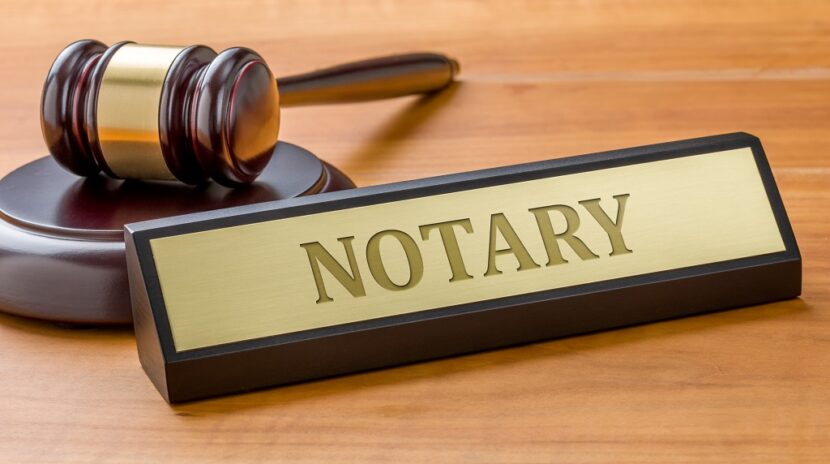Notary Public in Thailand. Thailand doesn’t use the classic “notary public” model found in the U.S. or civil-law countries. Instead, certain licensed Thai lawyers are authorised and trained to perform notarial acts as Notarial Services Attorneys (NSAs) under the Lawyers Council of Thailand. These NSAs perform the practical tasks most people think of as “notarisation” — authenticating signatures, certifying copies and translations, witnessing affidavits and powers of attorney — and their work is the first step for many documents that later require consular or Ministry of Foreign Affairs (MFA) legalization.
What a Notarial Services Attorney can (and cannot) do
A Notarial Services Attorney is a fully-qualified lawyer who has passed additional training and registration to give formal attestations. Typical notarial acts in Thailand include:
-
Witnessing and certifying signatures; identifying signatories by checking passports/IDs.
-
Certifying true copies of originals (certified copy).
-
Certifying translations (attesting that a translation is a true translation of the original).
-
Administering affidavits or sworn declarations and witnessing signatures on statutory forms and powers of attorney.
-
Issuing notarial certificates that describe the act performed and include the NSA’s seal, signature and registration details.
What NSAs do not do: they do not (by themselves) legalize a document for use overseas — notarization is typically followed by MFA legalization and/or embassy consular certification if the receiving country requires it. Thailand is not party to the Hague Apostille Convention, so apostilles are not available — the usual route is: NSA notarization → Thai Ministry of Foreign Affairs legalization → foreign embassy (if required).
When you need a Thai notary (common scenarios)
-
Power of attorney for transactions in Thailand or overseas.
-
Certified copies of passports, civil documents and university diplomas.
-
Business documents used abroad (company powers, director signatures).
-
Affidavits (marriage affidavits for foreigners getting married in Thailand, declarations for embassy use).
-
Certified translations that will be submitted to Thai authorities or foreign missions.
Step-by-step: how notarization typically works in Thailand
-
Confirm requirement. Check with the receiving authority whether it accepts notarization by an NSA, and whether MFA/legalization or embassy authentication is also required. (Many foreign authorities insist on MFA legalization after notarization.)
-
Prepare originals & translations. Bring original documents and any required translations (NSAs can certify translations in many cases).
-
ID & presence. The person signing must appear in person with original ID (passport or Thai ID). The NSA will verify identity and witness the signature.
-
Notarial certificate. The NSA completes a notarial certificate or endorsement: describing the act, quoting document details, and adding the lawyer’s signature, stamp and registration number. Keep originals and certified copies.
-
If needed, MFA legalization. For use overseas, submit the notarized document to the Ministry of Foreign Affairs – Legalization Division (Chaeng Watthana or other MFA offices) for authentication; some embassies then require further consular/legalization steps. MFA fees and timings vary (standard stamp ≈ THB 200; express options exist).
Fees, timing and providers
-
Notary fees are not set by statute and vary with complexity and location. Small, routine notarizations often range from ~THB 500–3,000 per signature/document; powers of attorney, corporate documents or travel-out services cost more. Mobile or same-day services add premiums. (Examples from law-firm price lists illustrate this range.)
-
MFA legalization is inexpensive per stamp (commonly around THB 200 per certificate for standard processing, higher for express services); embassies may charge additional authentication fees. Always check the MFA and embassy sites for up-to-date schedules and charges.
Practical tips — avoid the most common problems
-
Check the receiving authority first. Some foreign agencies insist on local embassy legalization even after MFA processing, or will only accept documents from a particular type of notary.
-
Use an NSA registered with the Lawyers Council. Ask for the NSA’s registration form or number (Lawyers Council publishes NSA training and registration information). This avoids invalid certificates.
-
Bring originals (and extra copies) — certified copies are commonly required by banks and consular offices.
-
Certify translations correctly. Many Thai authorities accept translations certified by an NSA; some embassies require translations by an approved translator.
-
Beware of informal “notaries.” Only licensed lawyers registered as NSAs offer the formal notarial certificate protected by professional regulation; unsigned or private “certificates” have limited legal weight.
Electronic / remote notarization — current state
In-person notarization remains the default in Thailand. Some private firms advertise mobile visits or remote/virtual signing options, but courts, government agencies and foreign embassies may not accept remote notarizations unless explicitly stated. If considering remote notarization, confirm acceptance with the end authority and use platforms/NSAs that provide secure identity and recording protocols.
Quick checklist before you visit a Thai NSA
-
Confirm whether MFA/legalization / embassy authentication will be needed.
-
Bring originals, valid photo ID (passport), and clean copies.
-
If translation is required, bring both original and translated copy; ask NSA to certify the translation if the authority accepts it.
-
Ask the NSA for a full notarial certificate (signed, dated, with stamp and registration number).
-
Budget for MFA and embassy fees and allow 1–3 business days for MFA processing (longer for consular steps).
Conclusion
Notarization in Thailand is a lawyer-driven system with robust practical equivalence to notary publics elsewhere — but with two critical differences: (1) the person who notarizes must be a licensed lawyer registered by the Lawyers Council as a Notarial Services Attorney, and (2) notarization is often only the first step for overseas use (Thailand uses MFA/legalization rather than apostilles). If your transaction crosses borders or involves banks, embassies or courts, plan the whole chain (NSA → MFA → embassy) up front and use an experienced NSA who can coordinate translations and legalization.

